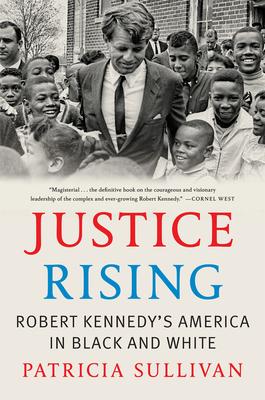"In most accounts of the tumultuous 1960s, Robert Kennedy plays a supporting role...Sullivan corrects this and puts RFK near the center of the nation's struggle for racial justice."
--Richard Thompson Ford, Washington Post
--Douglas Brinkley, author of Rosa Parks "A sobering analysis of the forces arrayed against advocates of racial justice. Desegregation suits took years to move through the courts. Ballot access was controlled by local officials...Justice Rising reminds us that although he was assassinated over 50 years ago, Kennedy remains relevant."
--Glenn C. Altschuler, Florida Courier "A groundbreaking book that reorients our understanding of a surprisingly underexplored aspect of Robert Kennedy's life and career--race and civil rights--and sheds new light on race relations during a pivotal era of American history."
--Kenneth Mack, author of Representing the Race "Brilliant and beautifully written...could hardly be more timely."
--Daniel Geary, Irish Times Race and politics converged in the 1960s in ways that indelibly changed America. This landmark reconsideration of Robert Kennedy's life and legacy reveals how, as the nation confronted escalating demands for racial justice, RFK grasped the moment to emerge as a transformational leader. Intertwining Kennedy's story with the Black freedom struggles of the 1960s, Justice Rising provides a fresh account of the changing political alignments that marked the decade. As Attorney General, Kennedy personally interceded to enforce desegregation rulings and challenge voter restrictions in the South. Morally committed to change, he was instrumental in creating the bipartisan coalition essential to passing the 1964 Civil Rights Act. After his brother's assassination, his commitment took on a new urgency when cities emerged as the major front in the long fight for racial justice. On the night of Martin Luther King's assassination, two months before he would himself be killed, his anguished appeal captured the hopes of a turbulent decade: "In this difficult time for the United States, it is perhaps well to ask what kind of nation we are and what direction we want to move in." It is a question that remains urgent and unanswered.
